I have an array of 109582 strings ordered alphabetically. My web application will be making a lot of rapid checks for whether a given string is contained in the array. Obviously I could make a wrapper class that is a hash table or binary tree, but is there any native JavaScript data structure that I can use instead?
Asked
Active
Viewed 7,456 times
2 Answers
13
Sure. Make an dictionary object
dict = {
string1: 1,
string2: 1,
etc
It's guaranteed to provide O(1) lookup time.
gog
- 10,367
- 2
- 24
- 38
-
-
2Big O notation isn't the only concern. Wall-time measurements matter to. I'd suggest that the OP time to test if using one hash/object is better, or if he should at least create a hash for each first letter. – Jeremy J Starcher May 06 '14 at 17:00
-
1Nothing does actually guarantee `O(1)` lookup time. True, most implementations do use hash maps for objects, but they could choose anything else as well. – Bergi May 06 '14 at 17:26
-
7
There are various suitable structures and approaches, see below how they perform.
Arrayforloopforloop (reversed)array.includes(target)
set.has(target)
obj.hasOwnProperty(target)target in obj<- 1.29% slowerobj[target]<- fastest
map.has(target)<- 2.94% slower
JSBench tests https://jsbench.me/3pkjlwzhbr/1
// https://jsbench.me/3pkjlwzhbr/1
// https://docs.google.com/spreadsheets/d/1WucECh5uHlKGCCGYvEKn6ORrQ_9RS6BubO208nXkozk/edit?usp=sharing
// JSBench forked from https://jsbench.me/irkhdxnoqa/2
var theArr = Array.from({ length: 10000 }, (_, el) => el)
var theSet = new Set(theArr)
var theObject = Object.assign({}, ...theArr.map(num => ({ [num]: true })))
var theMap = new Map(theArr.map(num => [num, true]))
var theTarget = 9000
// Array
function isTargetThereFor(arr, target) {
const len = arr.length
for (let i = 0; i < len; i++) {
if (arr[i] === target) {
return true
}
}
return false
}
function isTargetThereForReverse(arr, target) {
const len = arr.length
for (let i = len; i > 0; i--) {
if (arr[i] === target) {
return true
}
}
return false
}
function isTargetThereIncludes(arr, target) {
return arr.includes(target)
}
// Set
function isTargetThereSet(numberSet, target) {
return numberSet.has(target)
}
// Object
function isTargetThereHasOwnProperty(obj, target) {
return obj.hasOwnProperty(target)
}
function isTargetThereIn(obj, target) {
return target in obj
}
function isTargetThereSelectKey(obj, target) {
return obj[target]
}
// Map
function isTargetThereMap(numberMap, target) {
return numberMap.has(target)
}This answer is migrated from https://stackoverflow.com/a/65604244/985454
Qwerty
- 29,062
- 22
- 108
- 136
-
2It's worth noting that while `map` is indeed slower, you can map `
: – Nebu Feb 26 '22 at 22:00`, while Object only allows ` : ` _(I know the question is specific to string, but since your answer is so thorough I couldn't help but highlight the reason behind map' performance tradeoff )_
